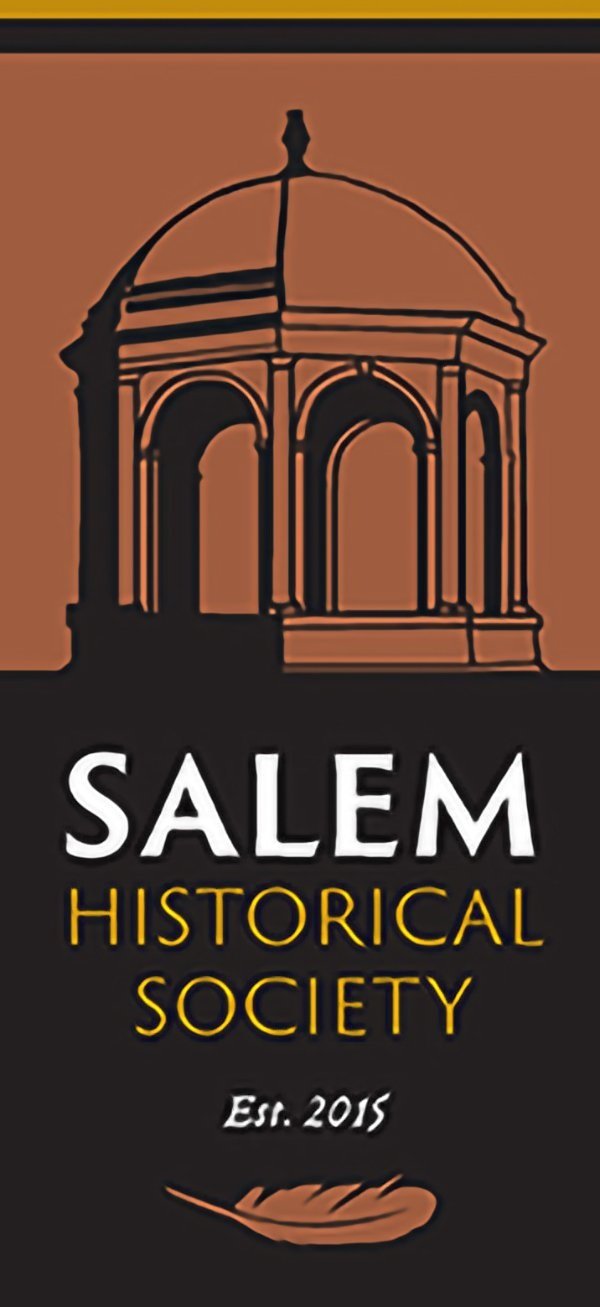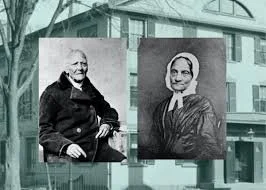SALEM’S AFRICAN AMERICAN HISTORY
Historical Overview
In 1638, the first known slave ship to leave New England was the Ship Desire out of Salem, Massachusetts, which carried Native Americans to “Providence Island” (now the Bahamas) and exchanged them for enslaved Africans. Governor John Winthrop wrote in his journal: "Mr. Pierce, in the Salem ship, the Desire, returned from the West Indies after seven months. He . . . brought some cotton, and tobacco, and Negroes." Since that time people of African descent have been part of the community and culture of Salem, Massachusetts.
The links and publications below provide general information on Salem’s African American community as well as African American History in Massachusetts. Much more needs to be done and we welcome your comments, questions and suggestions.
AFRICAN AMERICAN HISTORY AND HISTORICAL SITES IN SALEM
Black History is Salem History:
https://streetsofsalem.com/2019/02/28/black-history-is-salem-history/
The History of Slavery at Salem Maritime https://www.nps.gov/sama/learn/photosmultimedia/digitaltours.htm
Destination Salem:
https://www.salem.org/black-history-month/
Teaching American Slavery History:
Southern Poverty Law Center, Teaching Har History: https://www.splcenter.org/20180131/teaching-hard-history
Understanding and Teaching American Slavery (The Harvey Goldberg Series for Understanding and Teaching History)
https://www.amazon.com/gp/product/029930664X/ref=dbs_a_def_rwt_hsch_vapi_taft_p1_i0
History of Slavery at Salem Maritime Historic Park
https://salemmaritime.oncell.com/en/introduction-192679.html
COLONIAL PERIOD AND REVOLUTIONARY MASSACHUSETTS
WEBSITES:
Museum of African American History Boston:
https://www.maah.org/
Forgotten Patriots: African American and American Indian Service in the Revolutionary War, 1775-1783:
https://www.dar.org/library/research-guides/forgotten-patriots
Massachusetts Historical Society:
https://www.masshist.org/endofslavery/index.php
PEM/podcast:
https://www.pem.org/blog/pemcast-episode-15-the-struggle
Historic Beverly:
Set at Liberty, Stories of the Enslaved in a New England Town
https://spark.adobe.com/page/eLxVbaIbhFbIE/
Invisible Injustice: Discovering & Disseminating the Story of Slavery in the North:
http://cc.satvonline.org/Cablecast/Public/Show.aspx?ChannelID=3&ShowID=9695
BOOKS:
From Slavery to Freedom: A History of African Americans, 8th ed.,
Franklin, John Hope and Alfred A. Moss, Jr. (New York: Alfred A Knopf, 2000)
The Negro in Colonial New England, 1620-1776
Greene, Lorenzo (New York: Columbia University Press, 1942)
Black Lives, Native Lands, White Worlds: A History of Slavery in New England
Hardesty, Jared R. (Amherst: University of Massachusetts Pres, 2019)
Hard Road to Freedom: The Story of African America
Horton, James Oliver and Lois E. Horton (New Jersey: Rutgers University Press, 2001)
Making Slavery History: Abolitionism and the Politics of Memory in Massachusetts
Minardi, Margot New York: (Oxford University Press, 2010)
Black Yankees: The Development of an Afro-American Subculture in Eighteenth-Century New England
Piersen, William D. (University of Massachusetts, 1988)
The Negro in the American Revolution
Quarles, Benjamin (The University of North Carolina Press, 2012)
New England Bound: Slavery and Colonization in Early America
Warren, Wendy (New York : Liveright Publishing Corporation, 2016)
The Black Phalanx: A history of the Negro soldiers of the United States in the war of 1775-1812, 1861-'65
Wilson, Joseph T. (Hartford, Conn. American Publishing Company, 1888.)
PRE-CIVIL WAR SALEM
derby wharf and the custom house at salem, ma
Post-revolutionary Salem was a vibrant seaport into the mid-19th century, offering employment at sea and opportunities to create businesses to support its diverse economy. Salem’s African American community was at the forefront of activism to confront racial prejudice, segregation in its schools, harassment of fugitive slaves and the anti-slavery movement. In particular Robert Morris became a prominent lawyer in the fight against the Fugitive Slave Act.
PROMINENT PEOPLE OF SALEM:
CHARLOTTE FORTEN
CHARLOTTE FORTEN
Charlotte Forten was the granddaughter of prominent Philadelphia African American abolitionist, James Forten, an early financial supporter of William Lloyd Garrison. When her aunt moved to Salem to live with the Remond family, who had successfully worked to integrate Salem’s schools, Charlotte followed in 1853. A poet, Charlotte was mentored by John Greenleaf Whittier as she finished high school and entered Salem Normal School (now Salem State University). "She was hired as the first African American teacher in Salem's public schools. Salem recently dedicated Charlotte Forten Park on New Derby St." below is a link to the dedication on the city website. Most famous for her diaries which primarily cover her years in Salem and in the Sea Island of South Carolina as a teacher during the Civil War (behind enemy lines), Charlotte loved the North Shore and returned after the war to work for the Freedman’s Bureau. Always an activist, educator, commentator and poet, she later moved to Washington DC, married Francis Grimke, and continued her work.
The Journals of Charlotte Forten, Stevenson, Brenda, ed., (New York: Oxford Press, 1988)
https://www.salemstate.edu/charlotte-forten
https://en.wikipedia.org/wiki/Charlotte_Forten_Grimk%C3%A9
https://www.creativecollectivema.com/projects/2019/11/29/charlotte-forten-park-dedication
THE REMOND FAMILY
JOHN AND NANCY REMOND IN FRONT OF HAMILTON HALL
The Remond Family of Salem attained national and international prominence leading abolitionist and women’s rights organizations, while running successful catering and hairdressing businesses.
The Remond Family Papers
https://pem.as.atlas-sys.com/repositories/2/resources/342
The Remonds of Salem: A 19th Century Family in Salem Massachusetts (Dorothy Porter) https://www.americanantiquarian.org/proceedings/44539361.pdf
https://www.nshoremag.com/faces-places/the-history-of-salems-hamilton-hall/
CHARLES REMOND
Charles Lenox Remond
(February 1, 1810 – December 22, 1873) was an American orator, activist and abolitionist based in Massachusetts. He lectured against slavery across the Northeast, and in 1840 traveled to the British Isles on a tour with William Lloyd Garrison. During the American Civil War, he recruited blacks for the United States Colored Troops, helping staff the first two units sent from Massachusetts. From a large family of African-American entrepreneurs, he was the brother of Sarah Parker Remond.
SARAH PARKER REMOND
Sarah Parker Remond
(June 6, 1826 – December 13, 1894) was born free in Massachusetts and became known as a lecturer, abolitionist, and agent of the American Anti-Slavery Society. An international activist for human rights and women's suffrage, she made her first speech against slavery when she was 16 years old. As a young woman, Remond delivered speeches throughout the Northeast United States against slavery. One of her brothers, Charles Lenox Remond, became known as an orator and sometimes they toured together for anti-slavery lectures.
https://scholarworks.umass.edu/cgi/viewcontent.cgi?article=1858&context=dissertations_1
The Female Anti-Slavery Society Salem, Massachusetts
Some time during the first four decades of the nineteenth century, a piece of West African cloth and a gold ring were sent by ship from an African father to abolitionist schoolmaster William B. Dodge of Salem, Massachusetts.
According to Dodge's descendant, Virginia Gray, the gifts were sent "by an African Chieftain in grateful recognition for sending his kidnaped son who was sold into American slavery back home."http://apps.newtonma.gov/jackson/seeking-freedom/02.html
CHARLES A. BENSON, STEWARD
THE BARK GLIDE,
SERVED ON BY CHARLES BENSON
Many African American men had businesses or were employed in maritime trades either shipping or fishing. The Phillips Library and Archive has significant collections of family papers of white Salemites that include documents and ships logs relative to African Americans. Besides the Remond Family Papers mentioned above, there are also the papers of Charles A. Benson, who worked for many years on board Salem ships.
Charles A. Benson (1830-1881) Papers, 1862-1880
Phillips Library MSS 15 https://pem.as.atlas-sys.com/repositories/2/resources/353
Travels and Tribulations of Charles Benson, Steward on the Glide, 1861-1881, Richardson, Katherine W. Essex Institute Historical Collections 120, no. 2 (1984): 73-109.
Reprints extracts from four journals kept by The Travels and Tribulations of Charles Benson, a black resident of Salem, Massachusetts, while a steward on the bark Glide during 1861-1881. https://babel.hathitrust.org/cgi/pt?id=wu.89067299420&view=1up&seq=89
New Guinea at one End, and a View of the Alms-House at the Other: The Decline of Black Salem, 1850-1920, Sokolow, Michael
(New England Quarterly71, no. 2 (1998): 204-228)
Charles Benson: Mariner of Color in the Age of Sail, Sokolow, Michael (University of Massachusetts Press, 2003)
ADDITIONAL READING SUGGESTIONS
Books on the Early History of Slavery:
Stamped from the Beginning, Ibram X. Kendi
https://www.ibramxkendi.com/stamped-from-the-beginning
The essential primer to the history of racist thinking in America and why and how racism is so intertwined in American society and culture.
For Adam’s Sake by Allegra di Bonaventura
https://wwnorton.com/books/For-Adams-Sake/
This is a family saga that feels deeply personal and very close to home even though the cast of characters is sprawling, and the time period is very different from our own. It follows the interwoven history of several families, both Black and White, in colonial Connecticut and provides a powerful reminder of the way that race, slavery, and family histories are intertwined.
The Cooking Gene, Michael J. Twitty
https://thecookinggene.com/
It’s a cookbook, food history book, history book, and memoir all in one, written by a cook and historic interpreter who describes his journey into history, ancestry and culture through food. His Instagram is also delightful.
The Hemingses of Monticello, Annette Gordon-Reed
https://wwnorton.com/books/9780393064773
Pulitzer and National Book Award-winning family saga of the biracial Hemings family, who include Sally Hemings (mistress of Thomas Jefferson and mother of several of his children) and James Hemings, the French-trained chef who introduced macaroni and cheese to the United States.
Chains, Forge, and Ashes (the Seeds of America Trilogy), Laurie Halse Andersen
https://www.scholastic.com/content/teachers/en/books/chains-by-laurie-halse-anderson/
A trilogy of young adult novels about a young African American girl who decides to liberate herself from slavery during the American Revolution. It’s superb historical fiction that is excellent reading for adults as well as kids, and has resources for discussion and further reading included in an afterword.
Many Thousands Gone, Ira Berlin
https://www.hup.harvard.edu/catalog.php?isbn=9780674002111
The history of slavery from the arrival of the first captives in the colonies up through the American Revolution. It’s a tome, but an important one, because it brings to life the creation of African-American culture and the experience of slavery before King Cotton or gospel music came onto the scene.
The Slave Ship: A Human History, Marcus Rediker
https://www.marcusrediker.com/books/the-slave-ship.php
Written by a maritime historian, this covers the 300-year-long history of slave ships carrying captives from Africa to both North and South America and reminds us that slavery impacted the entire Atlantic Ocean, involving millions of people.
Websites and Social Media:
The 1619 Project:
https://www.nytimes.com/interactive/2019/08/14/magazine/1619-america-slavery.htm
And now for the controversial...I do encourage everyone to explore the 1619 project, because most of its information is good and its goal- to forge a narrative of American history that is inclusive and accurate is commendable. It’s also become a lightning rod for criticism, much of it racist and petty, but some of it justified. I’m linking a couple of articles that correct its errors below:
https://www.politico.com/news/magazine/2020/03/06/1619-project-new-york-times-mistake-122248
https://www.smithsonianmag.com/history/misguided-focus-1619-beginning-slavery-us-damages-our-understanding-american-history-180964873/
The Royal House and Slave Quarters
https://royallhouse.org/
Historic house museum preserving and telling the story of the Royal family’s enslavement of forty people on their country estate just outside of Boston. They share excellent sources on their social media and are a great resource for understanding slavery in the North. A woman named Belinda Sutton, who was enslaved by the Royals for decades, successfully demanded a pension for decades of forced labor after the American Revolution.
Not Your Momma’s History
http://www.notyourmommashistory.com/
Run by African-American public historian Cheyney McKnight, offering lectures, school programs, living history demonstrations, performance art collaborations raising awareness of history, and more. Active and well worth following on Facebook and Instagram. If you ever get the chance to see Cheyney teach in person, go; she’s now offering online events too.
Fashioning the Self in Slavery and Freedom
https://fashioningtheself.tumblr.com/
A combination of history, art history, and more, this blog and Facebook page examine the many ways that people of the African diaspora and Africa have been depicted and represented themselves over the centuries.
Museum of African-American History and Culture’s Talking About Race
https://nmaahc.si.edu/learn/talking-about-race
This national museum, part of the Smithsonian, is of course full of artifacts and resources. Right now they’ve created a project called “Talking About Race” to help families and individuals learn how to discuss race effectively and with compassion and self-examination. They also have programs specifically for educators on this subject.
The Slave Dwelling Project
https://slavedwellingproject.org/
Seeks to raise awareness and preserve dwellings in which enslaved people lived by sleeping overnight in every known surviving slave dwelling in the U.S., as well as other educational projects.
Black Perspectives:
https://www.aaihs.org/black-perspectives/
Website published by the African American Intellectual Historical Association telling a wide variety of stories and offerings critical commentary on African-American history.
Ask a Slave
http://www.askaslave.com/home.html
A comedy web series teaching very real history, created by an actor who portrayed enslaved women at Mount Vernon.










